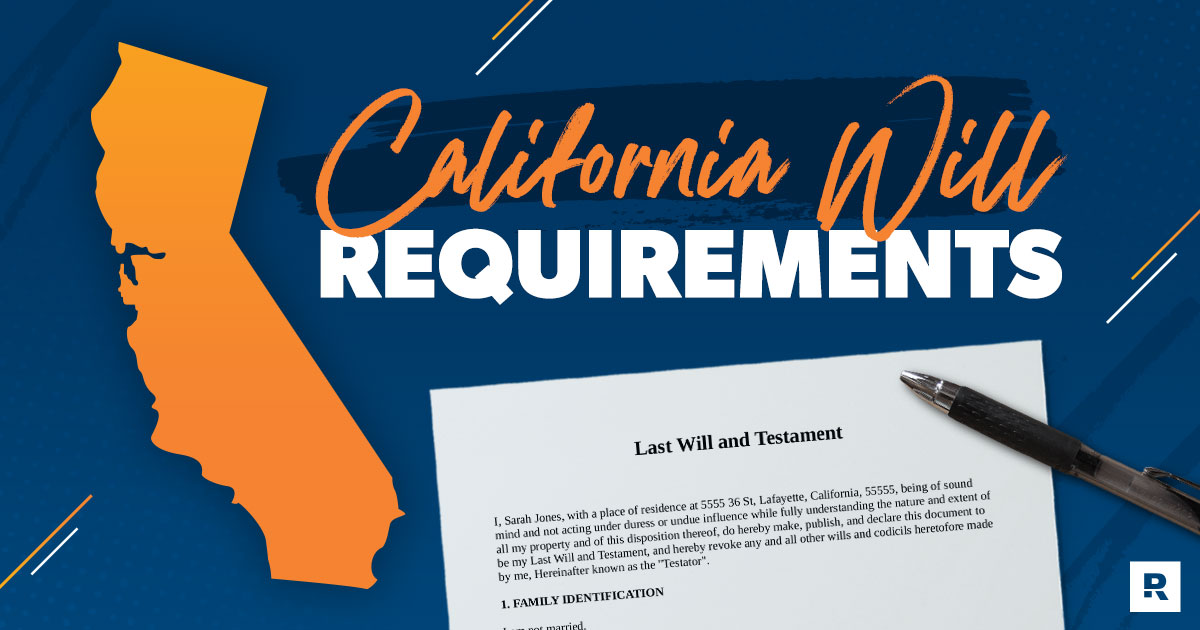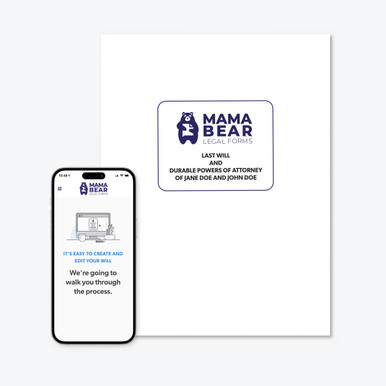California Last Will and Testament Requirements
5 Min Read | Jul 24, 2024

We’ll admit, researching California last will and testament requirements probably isn’t the most exciting thing you’ll do today. But if you’ve gotten this far, it’s clear you mean to get a handle on how to make a will in California. So, let’s make this easy. In plain language, here are the California will requirements:
1. Age
This one’s easy. The first California will requirement states that the testator—the person making the will—must be at least 18 years old. So no, your angsty tween can’t make a will to be sure you don’t inherit their Pokémon cards.
2. Mental Capacity
Evaluating mental capacity can be tricky. (Forget the in-law jokes for a minute.) Her
e’s the good news: California will requirements make it simple to figure out if someone’s mentally fit enough to make their own last will and testament. Here’s what’s required:
Understand What It Means to Make a Will
Pretty simple, right? The person making the will just needs to know they’re writing a document that spells out exactly what they want done with their assets when they’re gone.
Understand the Nature and Extent of Your Assets and Relationships
For the will to be legal, the testator needs to be aware of all of their assets and who they want to receive them upon their death.
No Mental Health Disorders
This one could have some wiggle room—we all have a little “crazy” in us. Right?
Save 10% on your will with the RAMSEY10 promo code.
But seriously, California will requirements say that anyone who writes a will can’t be diagnosed with any kind of mental health disorder that causes delusions and/or hallucinations.
The Executor Must Be of Sound Mind Too
It’s not just the person making the will who needs to be of sound mind. The executor—the person who carries out the instructions you put in your will—needs to be mentally capable too.
3. Unforced Decisions
Your last will and testament is all about your wishes—what you want to happen to your stuff when you die. If you’re married, you and your spouse should decide on those things together. But no one else should influence your decisions—and California law supports that. Bottom line: California law says you must make your will freely and voluntarily.
That means no one is putting improper pressure on you to give your asset(s) to person A instead of person B. Even if it’s a caretaker or a family member who’s doing the coercing, forced decisions in your will are not legal in California.
Don't Know Where to Start With a Will?
Download our will worksheet to get started.
4. Document Format
California law also has two important requirements about the format of your will.
Must Be on Actual Paper
Your will must be a physical document. Even though the current trend is toward digital everything (and some states are beginning to allow for electronic wills), California wills still need to exist physically.
For example, a PDF copy of your will that’s saved on your computer isn’t legal in California until you print it out. Neither is a video or audio version of your will—no matter how many movies you’ve seen that happen in!
Must Be in Writing
A will in writing can either be typed or handwritten. If it’s typed on a computer, you need to print it out.
If it’s handwritten, it’s called a holographic will. While they are legal in California, holographic wills have their own set of rules.
5. Signatures
Last one! It’s important . . .
Signature
Technically, all wills should be signed by the person who wrote it. But under California law, the testator can ask someone else to sign their will. Of course, that immediately raises the question of whether they’re mentally capable of signing the will. Maybe they’re not of sound mind.
Okay, there could be other reasons why you’d ask someone else to sign your will for you. Maybe one of your fingers or thumbs is broken. Or maybe you’re having trouble with your eyesight that day.
Whatever the reason, if you’re mentally and physically able to sign, you should sign your will.
Witnesses
California requires wills to be signed by two witnesses. Also, the witnesses must be present and sign at the same time, and they must be mentally competent enough to understand that they’re witnessing the signing of someone’s will.
One more reason to be careful about who you choose as a witness: California has a disinterested witness requirement, and it means your witnesses can’t receive anything from your will. Nada. Zip. Nothing.
Notary
And now for the final California will requirement—or more accurately—non-requirement. California does not require your will to be notarized to make it legal. So, you could just sign it with the right witnesses and be done. But we suggest getting it notarized anyway—it’s a good way to avoid extra problems in probate (that’s the court process that deals with wills).
One last thing (and it’s probably a no-brainer, but we’ll say it anyway). You cannot name beneficiaries for stuff you don’t own. Sure, you could impress (or torture) your nephew by promising to leave him that nonexistent Lamborghini in your will, but that could invalidate your entire will. So, trust us, don’t use your will to give away property that’s not yours.
Take the Next Step
Now that you understand California will requirements, the next step is to actually write your will.
We suggest working with RamseyTrusted provider Mama Bear Legal Forms. Mama Bear makes writing your will easy—all you have to do is fill in a few simple answers and you’re done. Even better? You don’t have to worry about whether the wording inside your will is legally binding in California—Mama Bear takes care of that for you.
Complete Last Will Package for Married Couples
Complete Last Will Package for Individuals
Interested in learning more about estate planning?
Sign up to receive helpful guidance and tools.





